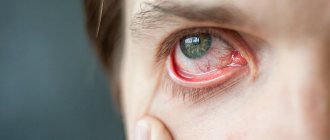If you've just started breastfeeding, you may be wondering if your baby is getting enough food. If you notice that your baby is not gaining weight or that he rarely needs to change his diaper, he may not be getting enough breast milk. This may be because your baby is not latching properly or, in rare cases, because you don't have enough milk. Fortunately, on average, most women produce a third more milk than their baby eats. If you are still concerned that your milk supply is low, discuss this with your doctor or lactation consultant. In this article, we will tell you how to naturally increase your breast milk supply and why milk supply sometimes decreases.
Signs that your baby is not getting enough breast milk
Don't try to estimate how much breast milk you produce. It is better to pay attention to signs that indicate that the baby has enough milk. Try asking yourself the following questions:
- Is your baby gaining weight?
One of the most reliable signs of proper feeding is the child’s stable weight gain. It is worth noting that most often newborns lose a little weight in the first few years of life (but no more than 10% of birth weight), but regain it by the 10th day of life. A growth chart along with consultation with a doctor will help you monitor your baby's development.
- Does a baby need a lot of diapers?
Count how many newborn diapers you use. This is a good indicator of whether your baby is getting enough food. Typically, a child needs to change six wet diapers per day, and at least three or four of them should be with stool. In the first days, a newborn's stool is dark and sticky, but later becomes liquid and yellowish. Urine should be pale yellow and odorless, not dark yellow or orange.
- How often does your baby breastfeed?
Newborns are breastfed 8 to 12 times a day, approximately every two to three hours. Nutritional requirements may increase during growth spurts.
- Does your baby seem happy between feedings?
If after feedings the baby looks satisfied, happy, cheerful and active (and not nervous and capricious), most likely he has enough nutrition.
- Are your skin and lips dry?
If there are no signs of dehydration, the lips are moist and not chapped, and the fontanelle is not sunken, then most likely the baby is getting enough fluids from the mother's milk.
If your baby doesn't get enough milk, he may sleep all the time or appear sleepy. In this case, be sure to contact your pediatrician.
Drink plenty of fluids
The importance of this factor can hardly be overestimated. For reference: the volume of food for a child in the first year of life starts at 700 ml (1/5 of body weight), gradually increasing to 1 liter per day. Accordingly, the volume of liquid consumed by a nursing mother should increase by at least 1 liter. At home, you should always have herbal teas in a thermos and boiled water (mineral water, compotes or fruit drinks) available at the same time. Combining drinking hot herbal decoctions with feeding is especially effective: you put the mug on the table and, drinking periodically, put the baby to your breast. A wonderful feeling of tide in the chest is guaranteed!
What affects the amount of breast milk?
If your baby isn't getting enough nutrition, it's most likely because he's not latching on properly, not because you're not producing enough milk. Read how to help your baby latch on correctly. But there are other factors due to which the amount of breast milk decreases:
- You started breastfeeding late (ideally, you can breastfeed your baby immediately after birth, but in some cases this is not possible).
- You are not breastfeeding often enough (experts recommend putting your baby to the breast on demand in the first month of life, but at least 8–12 times a day).
- You are taking certain medications, including those containing pseudoephedrine, or certain types of hormonal contraceptives that reduce milk production.
- The baby does not latch onto the breast correctly, which reduces milk production.
- You had breast surgery.
- The child was born prematurely.
- You have pregnancy-induced hypertension.
- You are overweight or obese.
- You have insulin-dependent diabetes.
Daily control
Many mothers, after 3-4 months of feeding, complain that they have significantly less milk. This illusion often arises due to the fact that milk production is completely normalized, and the milk stops “flowing like a river.” Instead of oozing continuously, it remains in the breast and only leaves when the baby begins to suckle. In this case, there is no need to supplement the baby’s feeding or immediately begin to improve lactation. All you can do is eliminate foods from your diet that affect the taste of the milk
or may harm the baby.
So, garlic and pepper can make milk bitter. Whole cow's milk and legumes can cause gas formation in the baby's intestines. Strawberries, shrimp and peanuts - cause him to be allergic. Salted and pickled foods retain fluid in the body and reduce milk supply. On the contrary, milk
products, fruits (best of all are those that grow in your area), boiled meat and fish, vegetables and vegetable oil will help make milk more tasty and nutritious.
Diet for a nursing mother
What is possible, what is not, and in what mode is it best for a nursing mother to eat? Simple answers to complex questions. .
How to increase lactation
There is nothing to worry about - the amount of breast milk can always be increased. Here are some ways:
- Start breastfeeding as early as possible.
If possible, try to breastfeed your baby immediately, within the first hour of life. But sometimes this is not possible - for example, after a caesarean section. Don't worry, there are other ways to increase lactation!
- Use your breast pump regularly.
The more milk you express, the more milk you will produce. If you go to work, express milk for 15 minutes every few hours. To save time, you can use a double breast pump, with which you can express both breasts at the same time.
- Breastfeed frequently.
Typically, babies need 8 to 12 feedings per day. The more often your baby nurses and the more often you use your breast pump between feedings, the more milk you will produce.
- Make sure your baby is latching on correctly.
It is important that your baby latch on to the breast and swallow milk correctly. If in doubt, talk to a lactation consultant or doctor to assess whether your baby is latching correctly and swallowing well.
- Feed from both breasts.
Remember to switch breasts during feedings, offering a different breast each subsequent feeding. Both breasts must be involved in milk production. Use a breast pump to express any accumulated milk.
- Don't skip feedings.
Stick to your feeding schedule. If you work while breastfeeding and are pumping, try not to skip pumping as this will affect your milk supply.
- Consult your doctor about medications.
Some medications reduce lactation. Consult your doctor - perhaps he will advise you on analogues that do not affect the production of breast milk.
- Talk to a lactation consultant.
If you still think your milk supply is low, talk to a lactation specialist or your doctor.
No need to worry! Even if you feel like you don't have enough breast milk, there are ways to increase your milk supply. Follow our advice and consult with your doctor to find out for sure whether your baby is getting enough nutrition.
Useless knowledge
Sometimes people around you give “useful” advice and “folk wisdom” that are actually quite harmful. For example, there is a common misconception
that beer has a very good effect on lactation.
In fact, it helps no more than any other liquid, interferes with losing excess weight after childbirth, and the alcohol it contains passes into breast milk, which is contraindicated for children. Also, to increase the fat content of milk, many grandmothers recommend eating lard. Most of this fat will not go into milk
, but will be deposited in fat reserves on the stomach and thighs, increasing the risk of diseases associated with excess weight.
The only good advice
that no one will argue with is the importance for successful breastfeeding of a calm and friendly environment in the family, good rest for the mother and attention to her and the baby from others.
Tags:
- Breast-feeding
- Diet
- Babies
3 comments • To leave a comment you must be an authorized user
- Innasokolkina I somehow weaned my son off the breast at the age of two, and that was because of my third pregnancy. And so, I don’t know when they would have left, we were fine, it’s not yet known who was more worried, me or him. (such closeness)
- Lilith The given advice is given, of course, for healthy women with an uncomplicated pregnancy. If you have any doubts, it is always better to ask your doctor. If he doesn't mind nipple training, there's nothing to worry about.
- llo81 Hello, my name is Lyudmila. I am the mother of 9 month old Glebushka and we enjoy breastfeeding)) The article is good, I liked it - short and to the point. The only advice that raises some doubt is the preparation of nipples during pregnancy, because stimulation of the nipples causes contractions of the uterus, and this can be dangerous for women at risk of miscarriage. I think the author of the article should edit the advice somehow.
Drugs that stimulate lactation
The use of medications to increase lactation is the most extreme measure. You should not think that drugs that stimulate lactation are absolutely harmless to a newborn. Each baby is individual, so his body can react accordingly to the composition of such products.
A doctor should prescribe drugs that increase lactation. It is not recommended to take appropriate medications on your own, since instead of benefiting them, they can cause significant harm to the body of both mother and baby.
The most popular, in demand and effective are the following drugs:
- Lactogone. The tablets contain carrot juice, royal jelly, ginger, nettle and dill extract. Take 3 tablets per day (with meals). Side effects include the possibility of developing allergies.
- Apilak. The main ingredients of the tablet are royal jelly and a complex of vitamins and minerals. Tablets are taken 3 tablets per day for 2 weeks. Apilak is an aphrodisiac, so it is not recommended to take it after 18 pm to avoid sleep problems. Other side effects are allergies.
- Femilak. Whey is dissolved in water and taken half an hour before eating. Femilak contains cow's milk powder, whey, mineral components, and vegetable oils. Side effects when consuming the mixture include allergic reactions.
- Mlekoin. The drug has a granular form. The granules are consumed before meals (dissolve in the mouth until completely dissolved). The product contains sleep-grass (meadow lumbago), sacred vitex, and stinging nettle. A side effect is an allergy to the components of the drug.
It is important to know that an overdose of any drug can cause serious complications. The first symptoms of an overdose (both in a baby and in a nursing woman) are: severe headache, nausea or vomiting, diarrhea, increased heart rate, dry mouth.
If one or more symptoms of overdose appear, you should immediately call a doctor.
It is impossible to determine exactly which method will help a nursing woman increase lactation. For some it will be herbal tea, for others proper nutrition will help. But it is important to remember that you need to start stimulating lactation with the safest methods, that is, first get rid of negative factors, try to restore your mental and physical state, and communicate with your baby more often. A healthy diet is also a must. Only healthy foods can have a positive effect on the quality and quantity of mother's milk.
Signs of insufficient lactation
To assess the adequacy of lactation, a thorough analysis of the child’s behavior, frequency of urination, and the nature of stool is necessary. Possible signs of insufficient lactation are:
- the child’s screaming and restlessness during or immediately after feeding;
- the need for frequent breastfeeding;
- long-term feeding, during which the child makes a lot of sucking movements in the absence of swallowing movements;
- the mother feels that the mammary glands are quickly completely emptied when the baby is actively sucking; when pumping after feedings, there is no milk;
- restless sleep, frequent crying, “hungry” cry;
- low rate of baby weight gain;
- infrequent bowel movements and urination*.
How to increase the fat content of mother's milk
The lack of fat in a baby's diet affects, first of all, its growth and development. But it is not so much the quantity as the type of fatty acids that is important. Poly- and monounsaturated fats help absorb vitamins and proteins, which accelerate cell division in a growing body.
A mother's diet cannot affect the fat content of breast milk, but it can determine the type of substances that are passed on to the baby. Here are the most valuable fatty acids that should be included in the menu of a nursing woman:
- Omega-3. These organic substances stimulate the growth of the child’s muscle mass, accelerate the development of the brain and retina, and strengthen the immune system. Omega-3 fats can be obtained from walnuts, flax seeds, soybeans and fatty fish. You should eat 2-3 dishes from these products per week.
- Omega-6. They promote brain cell division. Large amounts of Omega-6 are found in peanuts, sunflower and pumpkin seeds, Brazil nuts and olive oil.
- Monounsaturated fats. They lower cholesterol and blood sugar levels, and are responsible for the health of the heart and blood vessels. Monounsaturated fats are found in poultry, avocados, nuts, peanut oil and olive oil.
To increase the nutritional value of milk, it is useful for mom to drink special drinks - for example, milkshakes with protein powder and hot tea with walnuts and condensed milk without sugar.
Products to increase lactation
To stimulate the production of breast milk, a nursing mother can include special products in her diet, for example, Lactamil. It contains a complex of special herbs that give a lactogenic effect: cumin, nettle, anise, fennel. "Lactamil" contains not only herbs, but also milk protein, fatty acids, dietary fiber, a complex of vitamins, and microelements. Their combination can promote rapid recovery after childbirth and increase the quantity and quality of breast milk. Unlike folk recipes and homemade “herbal remedies,” lactation products undergo clinical trials and have precise dosages of medicinal plants.
What products are prohibited?
In addition to the allergenic foods already mentioned, during breastfeeding you should also avoid those that inhibit milk production. Basically, these are herbs and leaves of medicinal plants.
In order for the lactation process to proceed without interference, you need to give up the following herbs:
- Parsley, lingonberry, bearberry
- Sage
- All parts of peppermint and mint;
- Horsetail;
- White bloodroot;
- Jasmine leaf.









